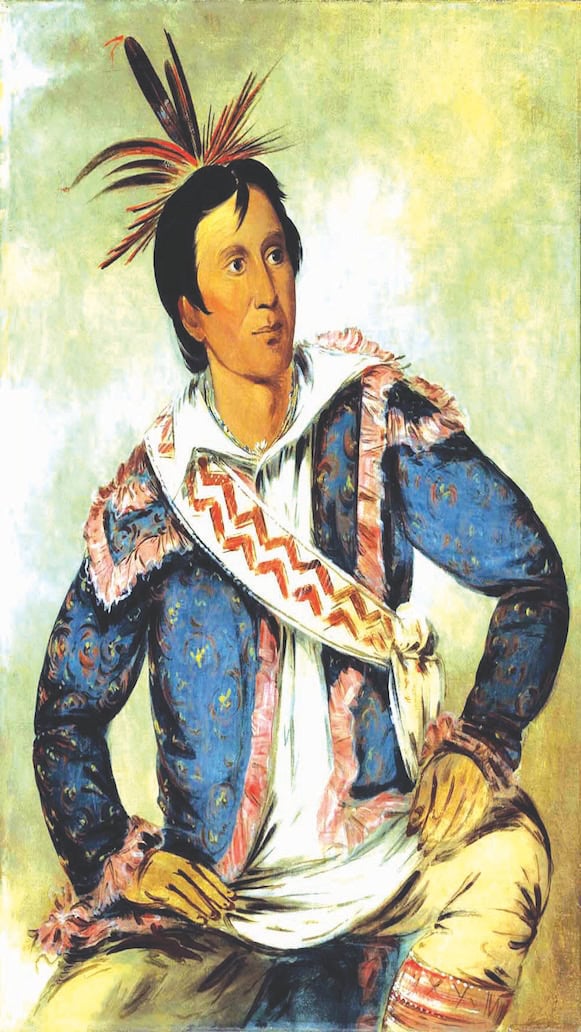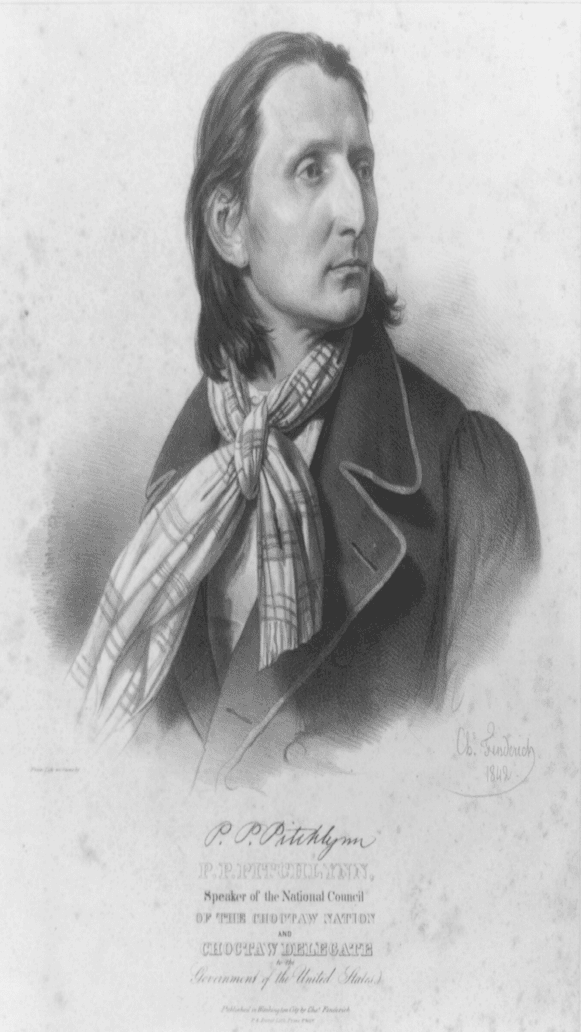
The Role of Choctaw Leaders – Past and Present
Iti FabvssaPublished March 1, 2016The early 1800s was a time of change and adaptation for many Choctaw people. Americans began to look at the Choctaw Nation for its vast natural resources and land. Choctaw chiefs were being forced to cede lands to the United States in exchange for the payment of monetary debts, a new concept to Choctaw society. Choctaw leaders quickly developed an understanding of American politics after attending many meetings with the Indian agents that the federal government assigned to them. In 1816 not long after winning the War of 1812 with Choctaw support, the United States demanded a treaty to cede lands in Alabama. The Choctaw leaders knew they would have to cede these lands, however, they had learned how to “conduct business” in the American way. The Choctaw leaders quickly responded with their own requests before signing the treaty. Once the treaty had received the required signatures of the Choctaw leaders, the Indian agent rushed back to Washington D.C. to have the treaty ratified. To the astonishment of the federal officials, they saw that the treaty was to the advantage of the Choctaw Nation, not the United States. The Choctaw chiefs had arranged it so that the Choctaw Nation would receive a monetary annuity for twenty years. It was quoted soon after that the Choctaw leaders were considered “shrewd businessmen.”
This annuity was used to pay for creating blacksmiths and funds for education.
Understanding that greater change would be needed for the Choctaw people to endure the encroachment of American citizens and the federal government, the Choctaw chiefs met in 1818 to discuss allowing an American citizen into the Choctaw Nation; his name was Cyrus Kingsbury. Kingsbury was the first missionary allowed to move into the Choctaw Nation. Upon his arrival he began to build Elliot Mission, the first mission school to ever be constructed in the Choctaw Nation. Soon after it began to receive its first students. Choctaw leaders understood the need for American schooling for Choctaw youth. If Choctaw society was to successfully endure, then future leaders would need to understand both Choctaw and American society. Soon after, many other mission schools were constructed. After the Trail of Tears many of the youth trained at these mission schools became some of the greatest Choctaw leaders throughout the 1800s, paving the way for the Choctaw Nation of Oklahoma today.


Our Choctaw leaders of the past were thoughtful leaders, whose first duty was always to the Choctaw people. Western academics call this style of leadership servant leadership or collectivism. To Choctaw people it was and is the style of leadership our Choctaw leaders have always strived for, meeting the needs of the community. As Choctaw people we relied on our community and our family. Because we are interconnected, all people were expected to act as leaders when their special knowledge or abilities were needed. This way the burden of leadership is shared and the importance of a leader does not depend on the title an individual has, but instead the respect comes from their actions as a servant leader in the community. Leaders had to prove themselves before being selected by the community to lead. The village chief presided over the village, greeted visitors, and represented the village. The chiefs did not accumulate a lot of wealth, instead they shared their resources with the community. Choctaw society at that time looked down on people that hoarded wealth and were greedy. Instead Choctaw people believed in working and sharing as a community, so no one ever went without. Choctaw leaders made decisions based off the consensus of the community, making sure to hear the wisdom of elders and other distinguished individuals.
Today the idea of servant leadership is still seen not just in our tribal government, but also in our communities. There are many tribal youth, adults, and elders who serve their community on a daily basis. The hard work of our governmental leaders and community leaders is what paves the way to create a proud nation of Choctaws based on the values of faith, family, and culture. By keeping the traditions of our past and adapting to the future our Nation will continue to be successful and sustainable for future generations of Choctaws.